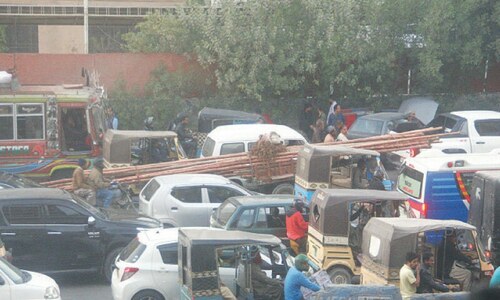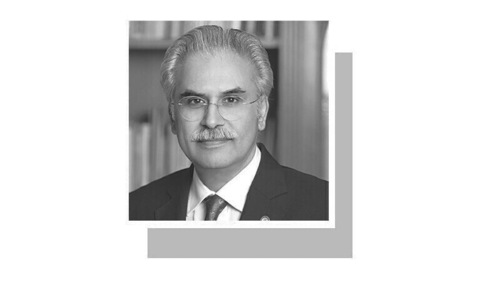KARACHI, Nov 2: The Karachi-based health institutions performed more than half of the living-related kidney transplants carried out in the country in one year after the promulgation of the Transplantation of Human Organ and Tissues Act (THOTA), 2007.
According to the data obtained from the Human Organ Transplant Authority (HOTA), as many as 539 transplants were performed from Sept 5, 2007 to Sept 4, 2008 in the country, out of which two were through deceased organ donations and 24 from unrelated but purely non-commercial and altruist donations.
At present, 20 public and 23 private health institutions are authorised by the government to carry out human organ transplant activities in the country.
The relevant laws do not allow selling, buying and removal of organs for commercial purposes.
In all, of the 265 transplants performed in Sindh, the Sindh Institute of Urology and Transplantation (SIUT) performed 261 transplants, while the Jinnah Postgraduate Medical Centre (JPMC) and the Karachi National Hospital performed two transplants each. The JPMC, after a years-long gap, resumed the transplantations this year only, it was further learnt.
Prof Anwar Naqvi of the SIUT said that 90 per cent of the patients undergoing transplants free of cost at the institute belonged to the lower or middle income groups of the population, who brought their own related-donors.
“Since the number of transplantation surgeries undertaken per day at SIUT has recently been increased, the waiting time for kidney transplants has reduced as well,” Dr Naqvi said, adding that his institute would be performing the highest number of kidney transplants annually by the end of 2008, with some 500 or more transplants.
Before the enforcement of the organ transplant laws, on average about 1,500-2,000 renal transplants were performed every year in the country. Out of these, 60 to 75 transplants were performed on foreigners involving non-related living kidneys acquired from Pakistanis, reportedly on a payment of Rs90,000 to 150,000 for one kidney.
During the last one year, eight or so foreigners coming with their own blood-related donors were given transplants by the HOTA-recognised institutions.
Maj-Gen (retd) A.Q. Usmani, the administrator of the HOTA, who was recently in the city in connection with an international symposium on organ donation, told Dawn that there was a need to educate people that the money received from illegal sale of organs wasn’t worth it in the long run and it would result in poor health for the donor.
“Efforts should continue to prevent the organ-sellers from becoming victims of unscrupulous elements as the selling, buying and removal of an organ for commercial purposes is a criminal act under the THOTA,” he said, while adding that the government had planned for creating more public awareness and winning necessary support from lawmakers, media personnel, doctors and religious leaders on the subject of cadaver organ donations.
He said that a national registry of organ transplants had already been established, while work on the formation of a common pool of deceased organ donations on a national level and having follow-ups to know the post-transplant health status of donors was also in progress.
According to HOTA data, of the total 539 transplants performed till September 4, 269 were performed in Punjab, including at the Armed Forces Institute of Urology, Rawalpindi; 265 were performed in Sindh, four in NWFP and, one in Balochistan.
In addition to 513 live related donations, 24 kidneys were accepted from unrelated donors in the absence of family donors or compatible related donations. Two deceased kidney transplants were also performed during the year in question at the SIUT.
Of the total transplants undertaken in Punjab, 128 were performed by public and private sector hospitals and medical institutions located in Lahore and five were performed in Bahawalpur.
The numbers of medical institutions enjoying interim or fully-fledged recognition of HOTA across the country are: 17 in Lahore, 12 in Rawalpindi/Islamabad, six in Karachi, two in Quetta, two in Multan one in Bahawalpur, one in Faisalabad, one in Peshawar, and one in Gambat (Sindh).














































Dear visitor, the comments section is undergoing an overhaul and will return soon.